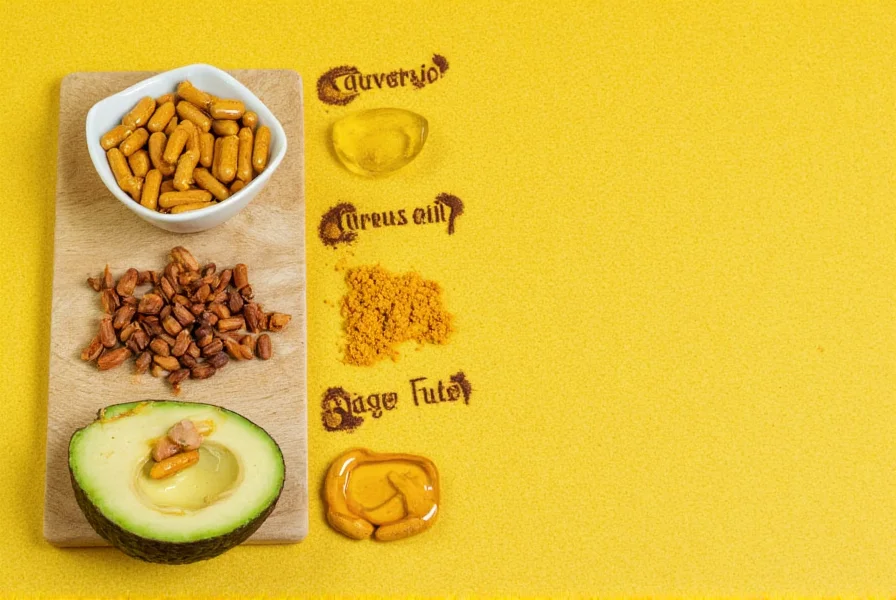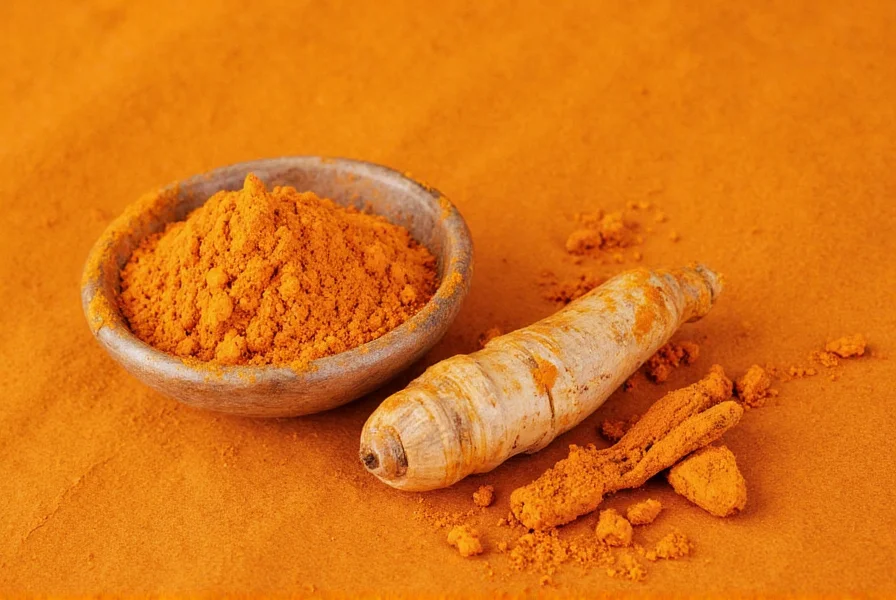For those incorporating turmeric into their wellness routine, timing matters more than many realize. This vibrant golden spice has been studied for its anti-inflammatory and antioxidant properties, but its effectiveness depends heavily on how and when you consume it. Let's explore the science behind optimal turmeric timing to maximize its health benefits.
Why Turmeric Timing Affects Absorption
Turmeric's primary active component, curcumin, has notoriously low bioavailability on its own. Studies show that curcumin is fat-soluble and poorly absorbed through the intestinal wall without proper carriers. When consumed with dietary fats, curcumin absorption increases dramatically—up to 2,000% according to research published in the journal Planta Medica.
Additionally, curcumin metabolizes quickly in the liver and intestinal wall. Taking it with food slows this process, allowing more time for absorption. The presence of piperine (found in black pepper) further enhances bioavailability by up to 2,000%, making the classic combination of turmeric and black pepper scientifically justified.

Morning vs. Evening: Timing Considerations
While the meal context matters most, timing throughout the day presents additional considerations. Here's how different consumption times compare:
| Timing Option | Benefits | Drawbacks |
|---|---|---|
| With breakfast (fatty meal) | Provides daytime anti-inflammatory support; aligns with natural circadian rhythms for metabolism | May interact with morning medications; less ideal if breakfast is low-fat |
| With lunch (balanced meal) | Ideal for most people; meal typically contains sufficient fats; avoids potential sleep disturbances | Requires planning for consistent daily intake |
| With dinner (fatty meal) | Supports overnight recovery; may enhance sleep quality through inflammation reduction | Potential digestive discomfort for sensitive individuals; may interfere with certain medications |
| On empty stomach | None proven by research | Significantly reduced absorption; increased risk of stomach upset; no scientific support for "detox" claims |
Optimal Turmeric Consumption Protocol
Based on current research, follow these evidence-based recommendations for maximum turmeric benefits:
1. Always Pair with Healthy Fats
Consume turmeric with foods containing healthy fats like avocado, olive oil, coconut milk, or nuts. A study in the American Journal of Clinical Nutrition demonstrated that dietary fat increases curcumin absorption by facilitating its transport through the lymphatic system.
2. Include Black Pepper
Adding just 20mg of piperine (about 1/20th of a teaspoon of black pepper) to your turmeric significantly enhances bioavailability. This combination works particularly well when taken with lunch or dinner.
3. Divide Doses for Sustained Benefits
For those taking higher doses (1,000-2,000mg daily), splitting the dose between lunch and dinner maintains more consistent blood levels of curcumin throughout the day and night.

Special Considerations for Different Needs
Your ideal turmeric timing may vary based on specific health goals:
- For inflammation management: Take with your largest meal of the day, typically dinner, to support overnight recovery processes
- For joint health: Consistent daily timing matters more than specific time—choose a meal you never skip
- For digestive sensitivity: Avoid taking turmeric on an empty stomach; start with smaller doses at lunch before adding dinner doses
- For cognitive support: Morning consumption with breakfast may provide daytime mental clarity benefits
Avoiding Common Turmeric Timing Mistakes
Many people unknowingly reduce turmeric's effectiveness through these timing errors:
- Taking turmeric supplements first thing in the morning without food
- Consuming turmeric with low-fat meals (like plain steamed vegetables)
- Taking turmeric at inconsistent times, leading to fluctuating blood levels
- Combining with calcium-rich foods immediately (may interfere with absorption)
Remember that consistency matters more than perfection. Taking turmeric regularly with any meal containing fats provides significantly more benefit than searching for the "perfect" timing but taking it inconsistently.
Final Recommendation for Maximum Benefit
For most people seeking the best time of day to take turmeric supplements, the optimal approach is consuming your dose with a meal containing healthy fats and a pinch of black pepper. Lunch provides an ideal middle ground for consistent daily timing without potential sleep disturbances that might occur with evening dosing for sensitive individuals.
Those with specific health concerns should consult with a healthcare provider to determine personalized timing based on medication schedules and individual health conditions. The key takeaway remains consistent: never take turmeric on an empty stomach if you want to experience its potential health benefits.











 浙公网安备
33010002000092号
浙公网安备
33010002000092号 浙B2-20120091-4
浙B2-20120091-4